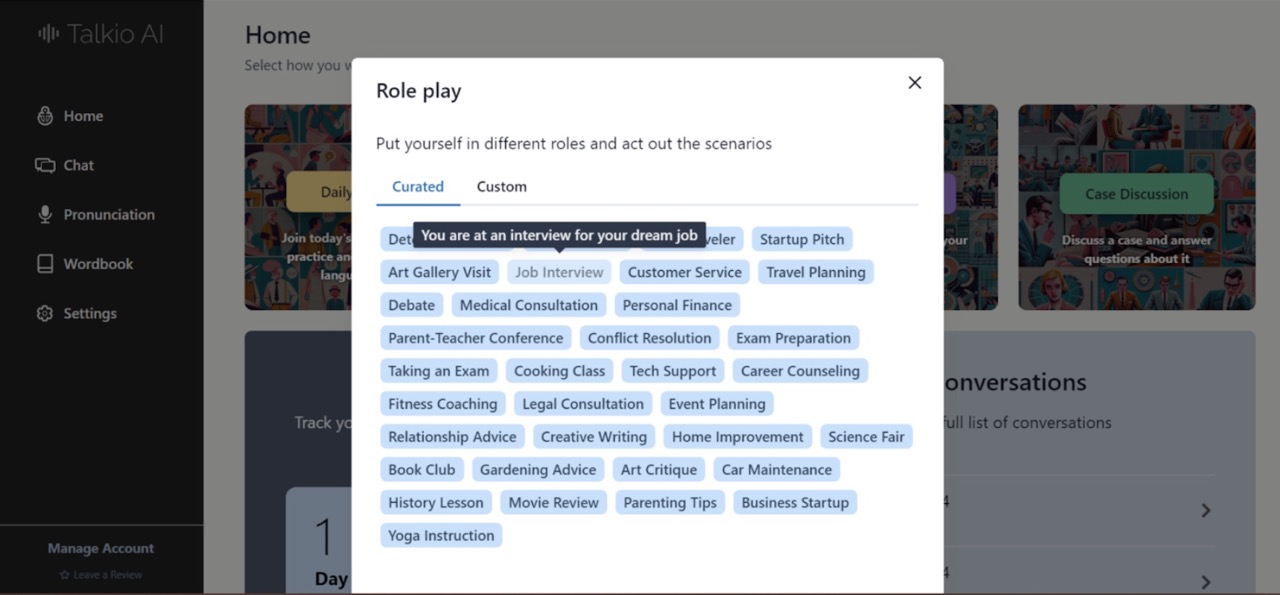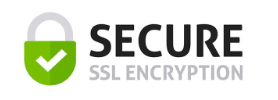Founded in Denmark. We respect your privacy.
Join a worldwide community of language learners
How to Get Speaking Practice for Professional Communication: Strategies for Effective Workplace Interaction
By Conor Monaghan
The Key to improving your speaking skills is understanding the role of body language, tone of voice, and active listening in effective communication. A confident stance paired with a well-modulated tone can significantly enhance the message you are trying to convey.
With consistent effort and a strategic approach to practice, you can cultivate a presence that commands attention and respect in any professional setting. Regularly engaging in speaking exercises, seeking opportunities for public speaking, and being receptive to constructive criticism will provide you with consistent improvement.
By doing so, your enhanced communication skills will not only reflect in your professional sphere but also benefit you in all facets of life, underpinning your journey towards being an effective communicator.
But What is Professional Communication?
Professional communication in a business context is critical for the smooth operation and success of an organization. As you advance in your career, the ability to convey ideas efficiently and effectively becomes integral.
Defining Effective Communication
Effective communication refers to the exchange of information in a way that the intended message is accurately delivered, received, and understood. In the professional realm, this means being able to articulate your thoughts clearly:
- Verbal Communication: The words you choose and how you deliver them, including tone and clarity.
- Non-Verbal Communication: Body language, gestures, eye contact, and posture.
- Written Communication: Emails, reports, and any written correspondence must be clear, concise, and free of jargon.
Importance in the Workplace
In the workplace, effective communication is crucial for:
- Team Collaboration: Ensures all team members are on the same page and working towards the same objectives.
- Problem-Solving: Facilitates the swift and efficient resolution of issues.
- Relationship Building: Fosters trust and understanding among colleagues and with clients.
Key Components of Professional Communication
The key components of professional communication include:
- Clarity and Concision: Be clear about your purpose and do not overload your message with unnecessary details.
- Active Listening: Engage with your audience, pay attention to feedback, and respond thoughtfully.
- Adaptability: Modify your communication style as needed depending on your audience and context.
- Respect and Professionalism: Maintain a polite tone, be respectful of others' ideas, and uphold professional standards in all forms of communication.
How to Practice English to Improve Your Professional Communication.
Talkio AI is an innovative language training app that leverages advanced AI technology to help professionals improve their English skills through engaging, life-like conversations with AI tutors.
By simply signing up and selecting English as the target language, you can immediately start practicing your oral communication skills in a browser-based environment.
Talkio AI's AI-powered conversations are designed to simulate real-world scenarios, allowing professionals to enhance their language proficiency in context-specific situations.

The app's cutting-edge technology provides instant feedback on pronunciation, grammar, and vocabulary, enabling users to make rapid progress in their English language mastery. With Talkio AI, professionals can revolutionize their English learning experience and gain the confidence needed to excel in international business settings.
Mastering Verbal Communication
To excel in professional communication, focusing on how you convey your messages verbally is essential. It's not only about what you say but also how you say it that makes the difference in a business environment.
Articulation and Pronunciation
Articulation is critical to ensure that your audience understands you. It involves clearly forming and expressing each word. To improve your articulation, practice saying difficult words and focus on enunciation, which is the act of speaking clearly and concisely. For example:
- Word: Entrepreneur
- Enunciation: /ˌɒn.trə.prəˈnɜː/
Pronunciation is about making the sounds of words properly. To practice:
- Listen to professionals speak, such as newscasters.
- Repeat after them, paying close attention to how they pronounce each syllable.
Appropriate Vocabulary
Using the right vocabulary is paramount. Words should be chosen for both accuracy and impact, but always keep your audience in mind. Strong word choice conveys authority and intelligence, while overly complex or technical terms can alienate listeners. For example:
- Instead of saying "utilize," say "use" when a simpler word suffices.
- Instead of "ameliorate," consider "improve" if it makes your message clearer to your audience.
Tone and Clarity of Voice
Your tone can drastically affect the message you're trying to convey. It reveals your feelings about the subject and can help you connect with the audience. Remember to:
- Modulate your pitch, raising and lowering it naturally to maintain interest.
- Be mindful of the volume, ensuring you're audible without being overwhelming.
Clarity of voice encompasses your speaking volume, speed, and breath control. Speak too quickly, and you may confuse your listeners. Speak too slowly, and you risk losing their attention. Maintain a moderate speed and use pauses for emphasis. Practice these aspects by:
- Reading aloud at a steady, conversational pace.
- Recording yourself to gauge clarity and making adjustments as needed.
Enhancing Nonverbal Communication
Nonverbal communication is a critical element in professional speaking that can reinforce the message you articulate with words. It involves body language, eye contact, and gestures which, when mastered, can significantly improve how your message is received.
Understanding Body Language
Your body language is a powerful indicator of your confidence and attentiveness in professional settings. To enhance your nonverbal communication:
- Be aware of your body movements: Consistent use of open, inviting postures can create an environment of trust and openness.
- Monitor your expressions: A neutral or positive facial demeanor is essential to appear approachable and engaged.
Eye Contact and Facial Expressions
The eyes are particularly effective for establishing rapport and conveying sincerity.
- Maintain appropriate eye contact: This indicates you are focused and value the interaction. However, be mindful not to hold eye contact so long that it becomes uncomfortable.
- Use expressions to communicate emotions: A genuine smile can be a strong tool to show approachability and warmth.
Gestures and Posture
Gestures should complement your verbal messages, not distract from them.
- Use purposeful gestures: Make controlled gestures that emphasize the points you're making.
- Adopt a confident posture: Stand or sit with your back straight and shoulders back, but avoid seeming rigid. Balance your weight evenly to avoid appearing anxious.
Active Listening and Feedback
Mastering the art of active listening and providing insightful feedback are pivotal in refining professional communication. This will enhance your ability to understand messages correctly and respond appropriately.
Developing Active Listening Skills
Active listening is about fully concentrating on the speaker, understanding their message, and responding thoughtfully. To develop your active listening skills:
- Maintain Eye Contact: By doing this, you show that you are focused and engaged.
- Avoid Interrupting: Allow the speaker to express their thoughts without interruption, signaling that you respect their point of view.
- Display Empathy: Demonstrate understanding by reflecting back what you've heard and acknowledging the speaker's feelings.
- Ask Open-Ended Questions: Encourage further explanation and show that you are interested in the conversation.
- Monitor Body Language: Non-verbal cues can often tell you more about the speaker's feelings than the words they use.
Providing and Receiving Constructive Feedback
Constructive feedback is an opportunity for growth. When giving or receiving feedback, aim for clarity and empathy:
Be Specific: Offer clear, focused comments on observable behavior or outcomes rather than on the person.
Stay Positive: Begin with positive remarks to create a receptive atmosphere.
Use "I" Statements: Phrase your feedback to reflect your perspective and not imply blame.
For example:
| Ineffective Feedback | Constructive Feedback |
|---|---|
| "You didn't do a good job" | "I noticed that the report missed X data" |
Listen to Feedback: When on the receiving end, listen actively. Ask for examples or clarification to fully understand the critique.
Manage Reactions: Keep your emotions in check. Receiving criticism can be difficult, but staying calm leads to more productive outcomes.
Building Confidence and Managing Anxiety
Effective professional communication often hinges on your ability to speak confidently and manage anxiety. Fostering confidence and emotional intelligence can help you tackle the fear of public speaking, while specific techniques can reduce nervousness, ensuring your message is delivered clearly and effectively.
Overcoming Fear of Public Speaking
The fear of public speaking is a common obstacle that many professionals face. To overcome this fear, it is crucial to recognize your anxiety and understand that it is a natural response to perceived threats. Engage in regular practice in safe environments, such as speaking clubs or informal groups, where the stakes are low, and feedback is constructive.
- Self-reflection: Identify the root causes of your fear and address them directly.
- Emotional intelligence: Cultivate awareness of your emotions to understand and manage the fear.
Techniques to Build Confidence
Building speaking confidence in a professional setting involves a set of skills that can be developed over time. Start by preparing thoroughly for each speaking opportunity, knowing your material inside and out.
- Practice: Repeatedly rehearse your presentation to reduce uncertainty.
- Visualize success: Imagine a positive reception to boost your morale before you speak.
Positive affirmations can also fortify your self-belief, encouraging a confident mindset before and during your speech.
- Affirmations:
- "I am prepared and knowledgeable."
- "My message has value and deserves to be heard."
Managing Nervousness and Anxiety
When nervousness and anxiety arise, employ practical techniques to regain control and maintain clarity.
- Deep breaths: Before speaking, take slow, deep breaths to calm your nervous system.
- Focus on the message: Shift your attention away from yourself and onto the value you’re delivering to the audience.
Public Speaking Techniques
Mastering public speaking techniques is crucial for engaging your audience effectively, using visuals and stories to enhance your message, and handling Q&A sessions with poise.
Engaging the Audience
To keep your audience's attention, tailor your message to their interests and knowledge level. Interaction is key—ask questions, seek opinions, and encourage participation. This creates a dynamic environment and fosters a connection. For instance:
- Use polls or show of hands to gather audience opinions.
- Encourage audience challenges to your points to spur involvement.
Using Visuals and Stories
Visual communication helps to clarify and reinforce your points.
- Incorporate relevant graphs or charts to convey data.
- Use images and videos that resonate with the topic.
Employ storytelling to make your presentation memorable:
- Share personal anecdotes that illuminate your points.
- Structure stories with a clear beginning, middle, and end to keep the narrative engaging.
Handling Q&A Sessions
Anticipate questions and prepare clear, concise answers.
- When faced with a question, take a moment to compose your thoughts.
- If unsure, it's acceptable to say you'll follow up post-session.
Encourage questions to foster engagement:
- Start with a seed question to stimulate participation.
- Affirm all questions and thank participants for their contribution.
Leveraging Technology and Media
In today's digital age, you have an array of technologies at your disposal to enhance your professional speaking skills. By incorporating media such as slides, images, and videos, and using recording tools for self-review, you can significantly improve your presentation abilities.
Presenting with Slides and Images
When creating a presentation, use slides and images to reinforce your message. Here’s what you need to keep in mind:
- Design: Ensure your slides are visually appealing and not cluttered. Use a consistent and professional theme throughout your presentation, or consider using an AI presentation maker to create engaging content.
- Content: Select images that complement your talking points. Each slide should support your speech, not distract from it.
- Engagement: Use tools like animations and transitions sparingly to maintain the audience's focus on the content.
- Practice: Familiarize yourself with the slideshow controls and practice your timing. Keep slides synchronized with your speech for maximum impact.
Recording Speeches for Self-Review
Recording your speeches is an invaluable technique for self-improvement:
- Playback: Watch your recordings to observe your body language, use of language, and delivery style.
- Critique: Identify areas of strength and those needing improvement. Pay particular attention to your voice modulation, articulation, and pacing.
- Iteration: Make changes to your presentation based on self-review. Record multiple iterations until you achieve the desired outcome.
Navigating Professional Settings
In professional settings, your ability to communicate effectively is critical. This includes delivering compelling presentations, engaging in networking events, and crafting clear written correspondence.
Workplace Presentations
When you're tasked with a workplace presentation, preparation is your cornerstone. Research your topic thoroughly and tailor your content to the specific industry and audience's level of understanding.
- Communication style is just as important as your message. Use a clear and confident tone, and adjust your language to be accessible yet professional.
- Maintain a steady pace and make eye contact to demonstrate leadership and engage your listeners.
- Preparation Steps for Presentations:
- Research the topic extensively.
- Understand your audience's industry knowledge.
- Plan the structure of your presentation.
Professional Networking
Professional networking events are opportunities to expand your professional circle and can be pivotal for career growth.
- Approach conversations with a genuine interest in others, sharing insights relevant to your job and industry.
- A firm handshake conveys confidence, while maintaining a friendly demeanor invites approachability.
- Listen attentively, and remember key details, as they can be useful in future dialogues or job interviews.
- Key Networking Strategies:
- Engage with genuine interest.
- Offer industry and job-related insights.
- Remember and use key information in future interactions.
Email and Written Correspondence
The email serves as a primary tool for written correspondence in the workplace.
- Be concise and to the point, ensuring your message is clear and free from ambiguity.
- Adopt a professional tone by starting with a polite salutation and ending with a proper closing, like "Kind Regards.”
- For different scenarios, adjust your language – from assertive for leadership directives to collaborative for team communications.
- Email Etiquette Tips:
- Start with a polite greeting.
- End with an appropriate sign-off.
- Be clear and direct in your message.
Cultivating Positive Relationships
In professional settings, fostering positive relationships is pivotal for success. Collaboration and emotional intelligence serve as the cornerstones, directly impacting the quality and effectiveness of your interactions.
Fostering Collaboration and Teamwork
To enhance collaboration and teamwork within a professional environment, you should:
- Establish common goals: Align team members with clear, achievable objectives.
- Communicate effectively: Regular, clear communication helps prevent misunderstandings and builds a strong team dynamic.
Engaging with colleagues regularly and showing appreciation for their contributions encourages a culture of mutual support and respect. This, in turn, fosters a collaborative environment conducive to collective achievement.
Building Empathy and Emotional Intelligence
Developing empathy and emotional intelligence is essential for nurturing professional relationships. Consider these steps:
- Active Listening: Pay attention to verbal and non-verbal cues to fully understand coworkers’ perspectives.
- Self-awareness: Reflect on your emotions and their impact on interactions.
Continual Improvement and Growth
The journey to enhancing your professional communication is grounded in the cycle of continuous improvement. By learning from errors and actively seeking practice, you lay the groundwork for sustained growth in your communication and leadership capabilities.
Learning from Mistakes
Mistakes provide invaluable lessons that can refine your speaking abilities. Take each mishap as a chance to improve, following these steps:
- Identify the error or area of improvement.
- Understand the impact of this mistake on your communication.
- Develop an action plan to prevent a similar issue in the future.
By embracing constructive criticism and reflecting on feedback, you transform mistakes into milestones for development.
Seeking Out Opportunities for Practice
Practice is essential for honing your communication and leadership skills. Seek diverse opportunities that will push your boundaries:
- Join professional organizations or groups where you can exercise your speaking skills.
- Take on roles that require public speaking, such as presentations or workshops.
- Volunteer for leadership positions where regular communication is key.
Each exercise is a stepping stone, building your confidence and ability to adapt your message effectively within various professional scenarios.
Frequently Asked Questions
In this section, you'll find targeted advice to enhance and practice your professional speaking skills effectively.
What are effective methods for improving professional speaking skills at home?
You can record yourself speaking and listen back for areas of improvement, or practice in front of a mirror to become more aware of your body language and facial expressions. Consistently doing these exercises helps refine and strengthen your public speaking capabilities.
What online platforms offer opportunities for practicing public speaking at no cost?
Platforms like Toastmasters International provide a supportive environment where you can develop your speaking skills through online clubs. Similarly, you can join public speaking groups on social media like LinkedIn or Facebook, where members often share opportunities to practice speaking at no cost.
How can one enhance their public speaking abilities in a professional context?
Participating in meetings and offering to give presentations at work can be an excellent way to practice. Additionally, seeking feedback from colleagues can help you identify specific areas to improve your public speaking abilities in a professional setting.
Where can one find scripts or structured exercises to practice public speaking?
Look for websites offering public speaking exercises or scripts, like the American Rhetoric online speech bank. Many professional development websites also offer structured exercises specifically designed for public speaking practice.
What resources are available for learning English with a focus on professional communication?
Websites such as the British Council and Coursera offer courses tailored to learning English for professional communication. These resources often include speaking exercises and provide feedback to improve business vocabulary and etiquette.You can also now practice with AI with tools like Talkio AI.
Are there techniques to speak more effectively and professionally in a work environment?
To speak more effectively, focus on clear articulation, appropriate pacing, and using a calm and steady tone. Practice using vocabulary that conveys competence. Ensure that your body language matches the professional message you're communicating.

Conor Monaghan
Conor was an English teacher for 10 years. He is interested in helping people with their English skills and learning about using AI tools at work.


